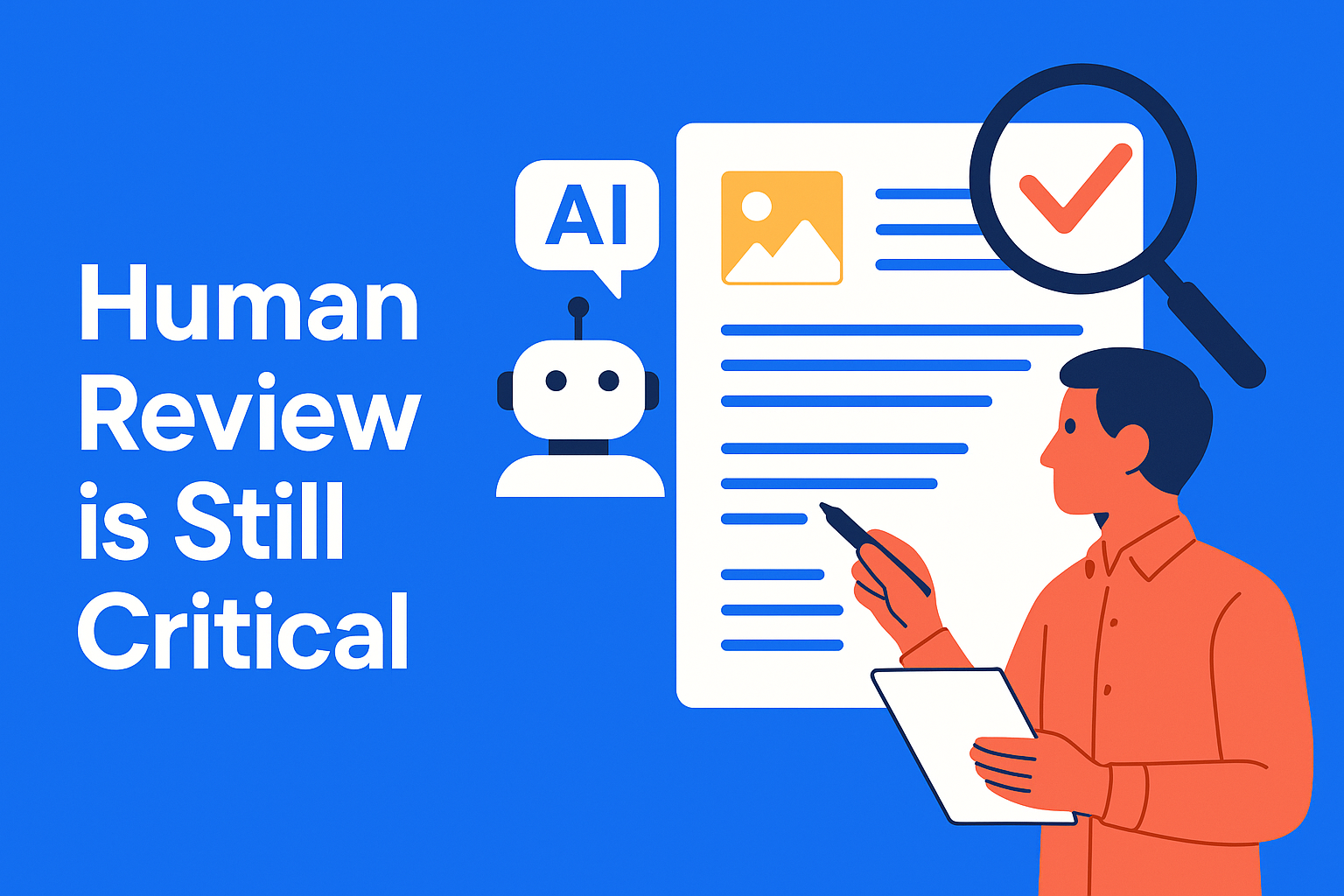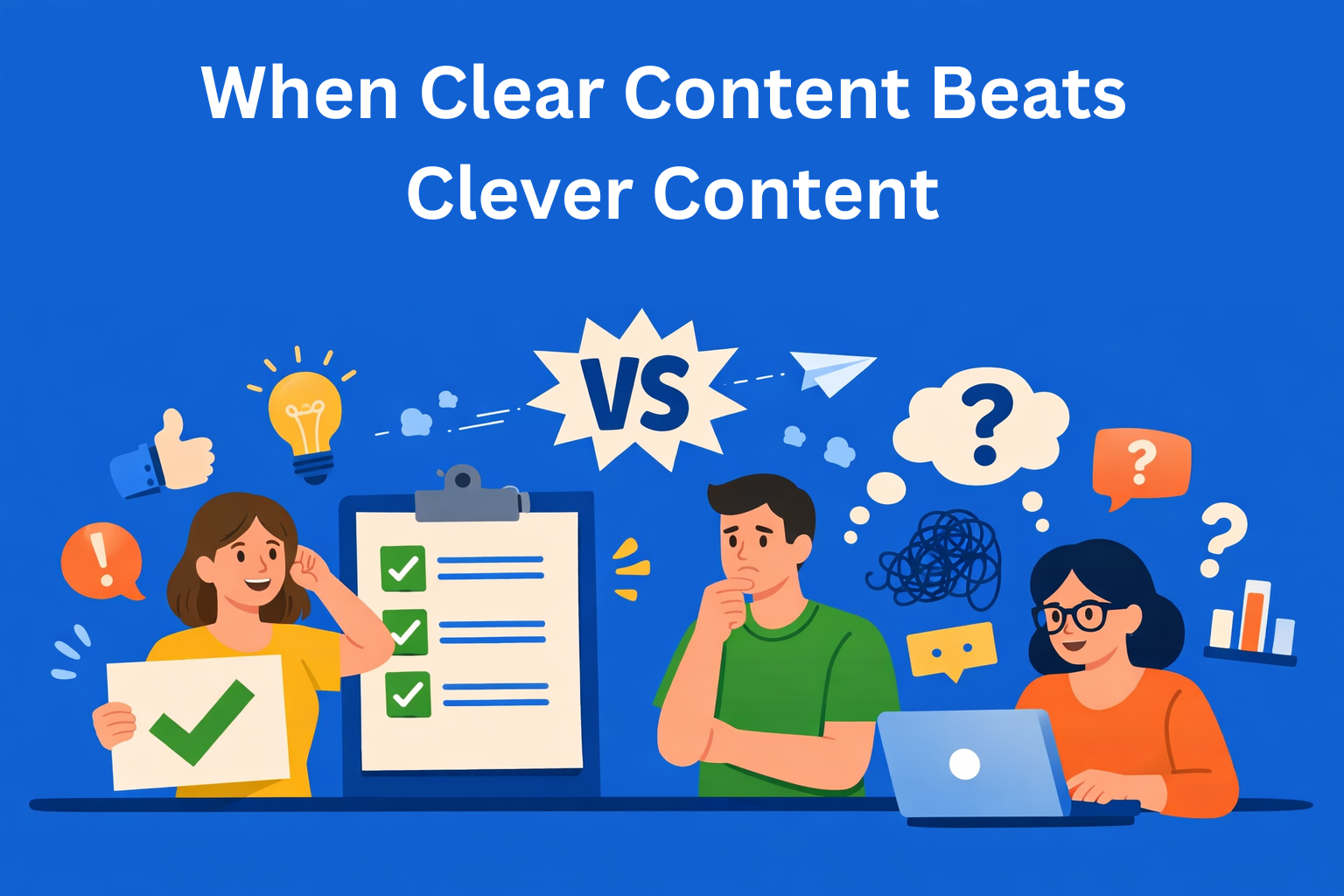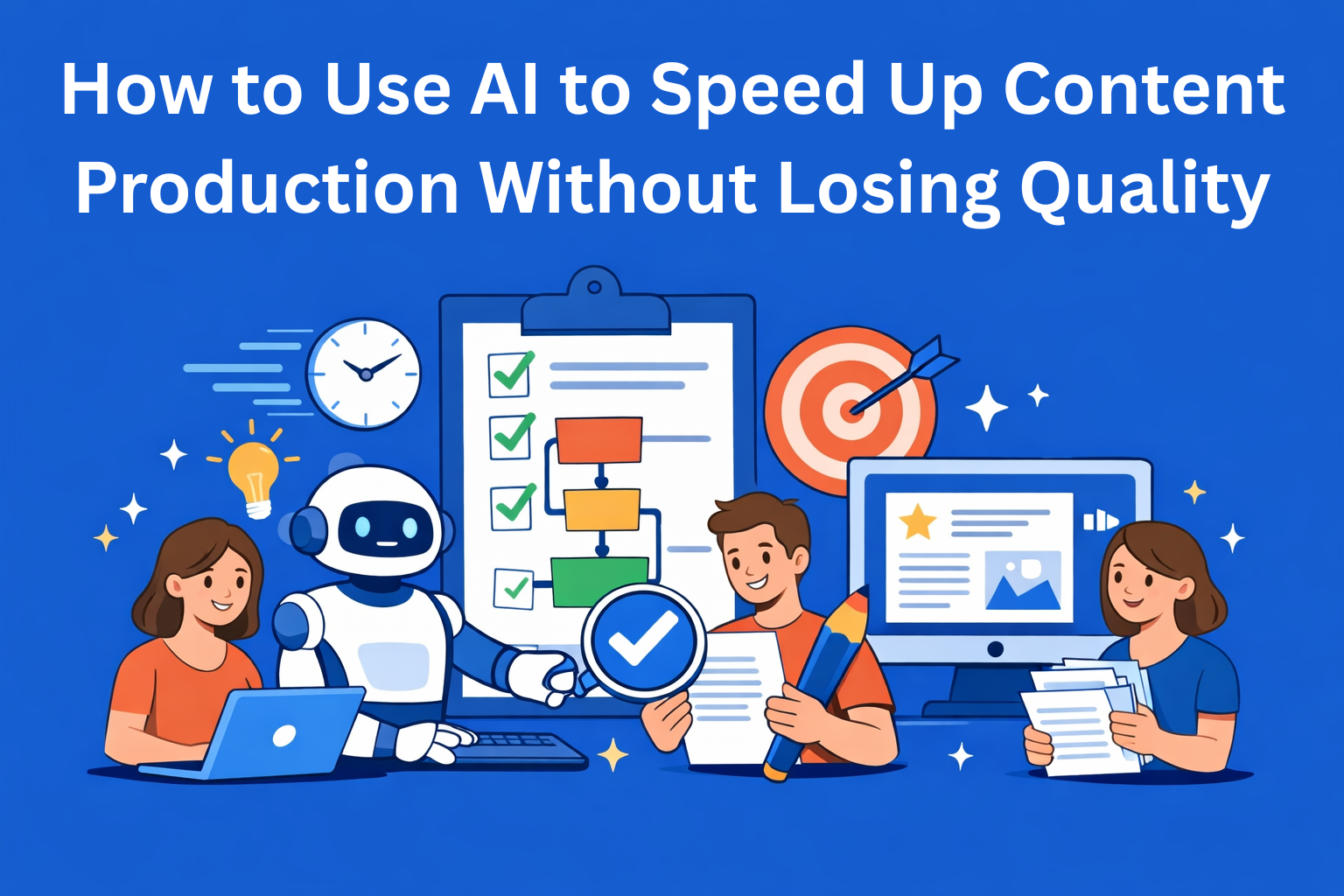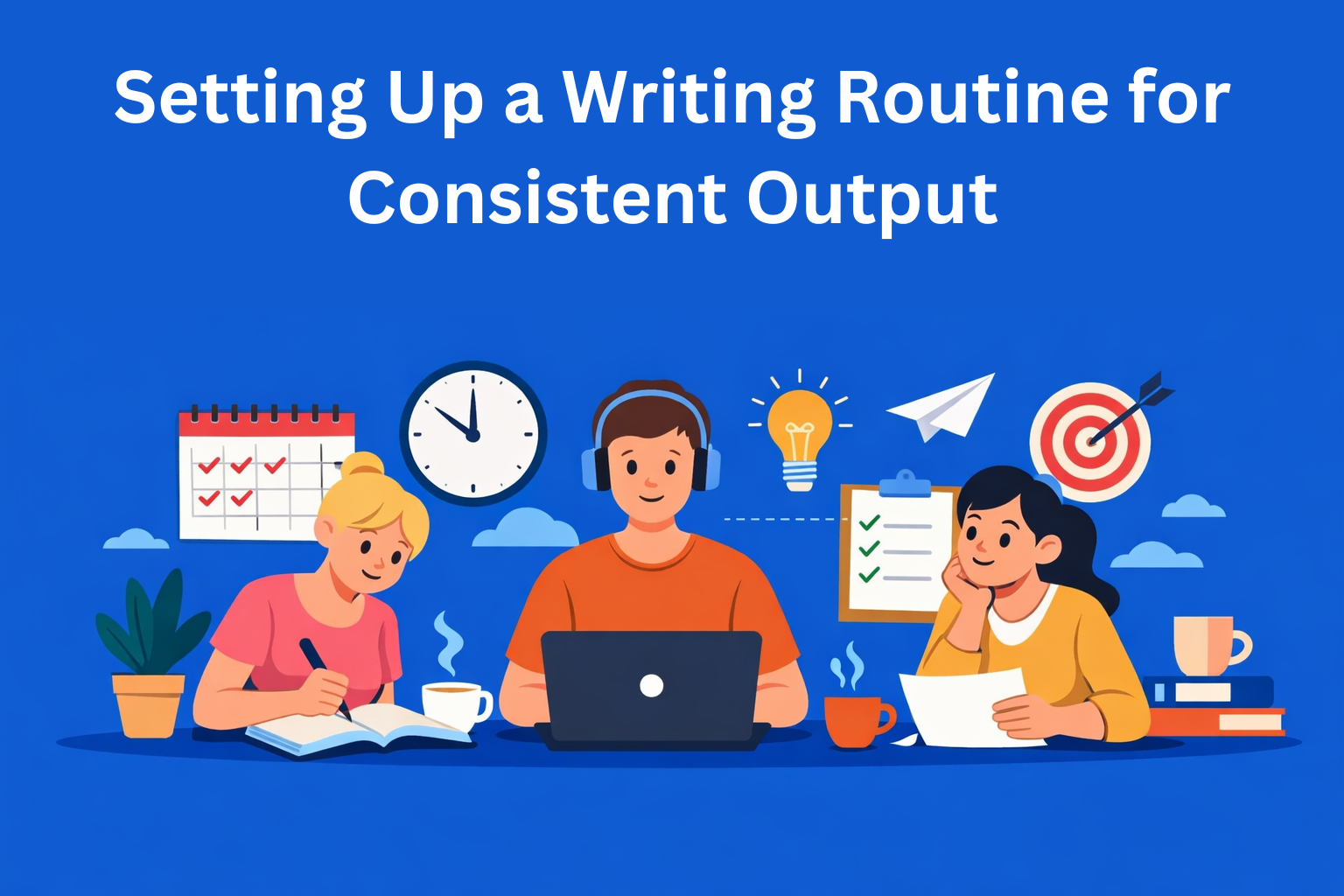Why Human Review Is Still Critical for AI Content
AI can speed up content creation, but without human review, quality suffers. The real value comes from balancing AI speed with human oversight. This blog reveals why human review remains essential for the accuracy, tone, and relevance of every piece of content.

In today’s digital age, we’re witnessing an incredible shift. Generative AI tools are changing the way we work, create, and communicate. Writers, marketers, content managers, and even executives are tapping into AI to draft emails, outline blog posts, generate social media content, and more. The appeal is obvious: AI is fast, available 24/7, and capable of churning out content in seconds.
It’s not just a trend-it’s a transformation. But like every shiny new tool, it comes with fine print.
Key Takeaways
- AI speed doesn’t equal quality - AI can draft fast, but without human review, errors, generic tone, and weak messaging slip through.
- Humans protect accuracy and trust - fact-checking, compliance, and ethical judgment can only be handled by people.
- Brand voice needs human judgment - AI imitates tone, but humans ensure content truly sounds like your brand.
- Audience relevance isn’t automatic - editors connect AI output to real user needs, context, and intent.
- Structure makes human review scalable - workflows, approvals, and review-first AI processes keep quality high as output grows.
The Power of AI Is Undeniable
AI content generators have redefined what "efficiency" means. Instead of spending hours brainstorming or writing from scratch, you can prompt a tool like ChatGPT or Claude and get a fairly coherent piece of content in moments. It's easy to understand the excitement.
Content marketers can meet tight deadlines. Small teams can scale their output without increasing headcount. Busy professionals can quickly generate outlines, brainstorm ideas, and create multiple variations of copy for A/B testing.
In a world obsessed with productivity, AI feels like a miracle.
But AI Is Still Just a Tool
As powerful as AI is, it’s important to remember what it is-a tool. And tools are meant to assist in the work, not do the work alone.
Think of AI like a high-tech power drill. It makes drilling faster and easier, but you still need a human hand to guide it. You still need someone who understands the blueprint, checks the angles, and knows what "done right" actually looks like. AI has no instincts, no judgment, no real understanding of tone, brand, audience, or nuance. It mimics these things based on patterns it has seen, but it doesn’t understand them.
That’s why AI output needs to be reviewed-not just lightly skimmed, but genuinely examined.
The Illusion of Perfection
At first glance, AI-generated content can seem polished. Sentences flow. Spelling and grammar are on point. It sounds confident.
But don’t let the clean output fool you.
AI can get facts wrong. It can misinterpret nuance, cultural references, or idioms. It can be repetitive, overly generic, or subtly off-brand. And sometimes, it just makes things up-a phenomenon known as AI hallucination.
In regulated industries, these errors can have serious consequences. Even in more relaxed contexts like marketing, they can damage credibility, erode trust, and waste time.
And let’s not forget: AI has no moral compass. It doesn’t know what’s ethical, insensitive, or legally risky. It doesn’t recognize bias. That’s all on you and your team.
Why Human Review Is Non-Negotiable
- Accuracy and Fact-Checking
AI isn’t connected to real-time data unless specifically designed for it. Many tools use a static knowledge base, which means their "knowledge" could be outdated. Humans need to double-check facts, dates, names, sources, and statistics. - Tone and Voice
AI can imitate tone but rarely nails it on the first try. A sarcastic brand voice, a compassionate tone in healthcare, or a punchy call-to-action requires refinement. Humans ensure the content sounds like you, not like a robot mimicking you. - Audience Relevance
AI doesn’t truly understand your customer personas. It doesn’t know what your audience cares about, what they’re frustrated by, or what makes them tick. Human editors connect the dots between raw output and reader relevance. - Compliance and Risk
In industries like finance, legal, and healthcare, compliance isn’t optional. Human reviewers can spot risky claims or language that might land your company in hot water. - Consistency Across Channels
Your brand message lives across blogs, emails, ads, and social posts. Reviewers make sure everything aligns and flows, while AI may treat each piece in isolation.
The Role of Platforms Like EasyContent
You might be thinking, "Okay, we’ll just have someone review the content before publishing."
But in a fast-paced team environment, especially where AI content is being generated at scale, that process needs structure. That’s where platforms like EasyContent come in.
With EasyContent, you can:
- Set up approval workflows that ensure nothing goes live without someone actually reviewing the content.
- Assign roles and permissions so the right people edit, review, and approve AI-generated content.
- Collect feedback and suggestions from different teams.
- Maintain brand consistency and editorial standards across all types of content.
In short, EasyContent helps teams stay in control of content creation, even when that content starts with AI. And the best part is verything is in one place.
Embracing the Balance
The goal isn’t not to use AI. On the contrary, it’s to embrace it wisely.
Let AI do the heavy lifting: brainstorming, outlining, first drafts. Then let your team step in to refine, personalize, and ensure quality.
This isn’t about resisting innovation. It’s about staying grounded as we evolve. Content still represents your brand, your values, your message. And that can never be outsourced to a machine.
Final Thoughts: The Human Touch Still Matters
AI is amazing. It’s fast, scalable, and endlessly helpful. But it’s not magic. It’s not flawless. And it’s definitely not human.
Behind every great piece of content-even if it started with AI-should be a person who paused, reviewed, and asked: “Is this accurate? Is this on brand? Is this what we want to say?"
Because content isn’t just words. It’s trust. It’s identity. It’s communication between real people.
So yes, let AI write. Let it help you move faster.
But let the final word be yours.






